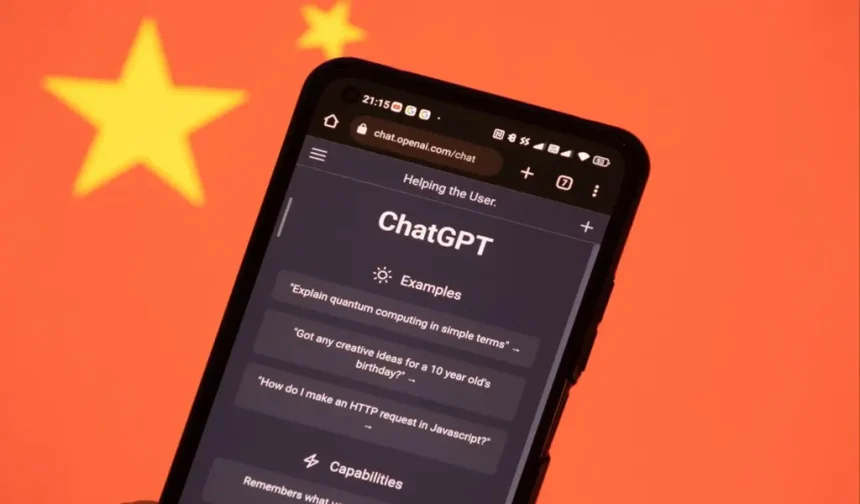(CTN News) – China’s internet watchdog has identified agents who provided local access to ChatGPT. Meanwhile, US provider OpenAI has restricted the usage of its AI technologies in the mainland, Hong Kong, and Macau.
During the first part of this year, the Cyberspace Administration of China (CAC) and other local authorities punished several website operators for providing unauthorized access to generative AI (GenAI) services on the mainland, including ChatGPT.
The CAC’s decision demonstrates its determination to enforce domestic AI regulations enacted in August of last year, which require all AI services to be inspected and registered by authorities before being made available to the public. Certain developers and enterprises, however, have exploited virtual private networks to circumvent these regulations and gain access to unregistered GenAI services.
The crackdown follows OpenAI’s decision to limit access to its API in “unsupported countries and territories” beginning July 9. OpenAI’s restriction extends beyond mainland, Hong Kong, and Macau to include US-sanctioned states including Iran, North Korea, and Russia.
The CAC’s branch in Chongqing has designated Nanchuan District Rongcheng Network Technology Studio, which manages over 10 websites in the country, for offering ChatGPT services without a safety evaluation, according to a statement released on Monday.
The CAC branch in Chongqing summoned studio representatives and asked them to immediately disable access to ChatGPT.

According to the CAC, the operators of Yizigpt.com, an AI writing platform, gaming site Kukupao.com.cn, and Lvshifuwuwang, a difficult-to-find online legal services provider, were caught failing to censor content that contained illegal information generated by undisclosed GenAI services.
According to the regulator, those operators received “administrative punishment,” which refers to non-criminal offenses that can result in penalties, the closure of a business, or the arrest of those responsible for an offense.
Other mainland cities’ authorities have also penalized websites for using artificial intelligence inappropriately. Police in Changsha, the capital of central Hunan province, detained a man called Xu for three days after he was found carrying an AI-generated bogus reward announcement for sought individuals.
The CAC branch in Leiyang, another city in Hunan, apprehended a man named Zheng who used artificial intelligence to manufacture false content and post it on a local website. Both Zheng and the website operator received administrative penalty.
Beijing has taken a cautious approach to GenAI since the debut of ChatGPT in November 2022.
While the mainland aspires to be a world leader in AI, it also wants to ensure that GenAI service providers “adhere to core socialist values” and do not generate content that “incites subversion of state power and the overthrow of the socialist system, endangers national security and interests,” according to the GenAI regulation, which went into effect last year.
There were 117 GenAI products registered with the CAC. In January, regulators approved the commercial use of 14 big language models, which power GenAI services such as ChatGPT and enterprise apps. The approvals follow the public availability of several GenAI services in August of last year.
Source: South China Morning Post

Anna Wong serves as the editor of the Chiang Rai Times, bringing precision and clarity to the publication. Her leadership ensures that the news reaches readers with accuracy and insight. With a keen eye for detail,














